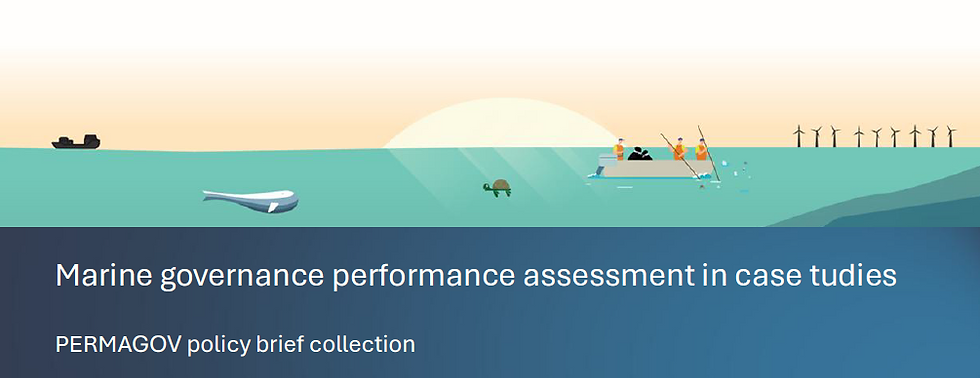Governance Challenges and Risks to Decarbonising shipping in the EU
- pavel874
- May 20, 2025
- 1 min read

To reduce emissions from shipping, maritime transport was included in the EU Emissions Trading System, a carbon market with the cap-and-trade logic. PERMAGOV conducted interviews with industry reps to see what they think about the measure. Here are the main take-aways.
Carbon leakage: There is a risk that current provisions of the EU ETS Maritime could result in a diversion of shipping routes from EU ports to non-EU ports, potentially contributing to carbon leakage and increased GHG emissions - the opposite of what EU ETS aims to achieve.
Green fuels: The lack of availability of alternative fuels for shipping could slow down emissions reduction efforts in accordance with the EU targets, and could lead to potential increase in EU ETS-related compliance costs for shipping companies.
ETS surcharge: The power imbalance that existed in maritime transport appears to have been exacerbated by the introduction of the ETS and related policies for decarbonising shipping. This gives leverage to powerful companies to impose their commercial priorities including ETS surcharges without a clear justification, which undermines trust.
In the presentation prepared by the case study team, you can learn more about the institutional barriers contributing to governance challenges in the EU ETS Maritime.












Comments